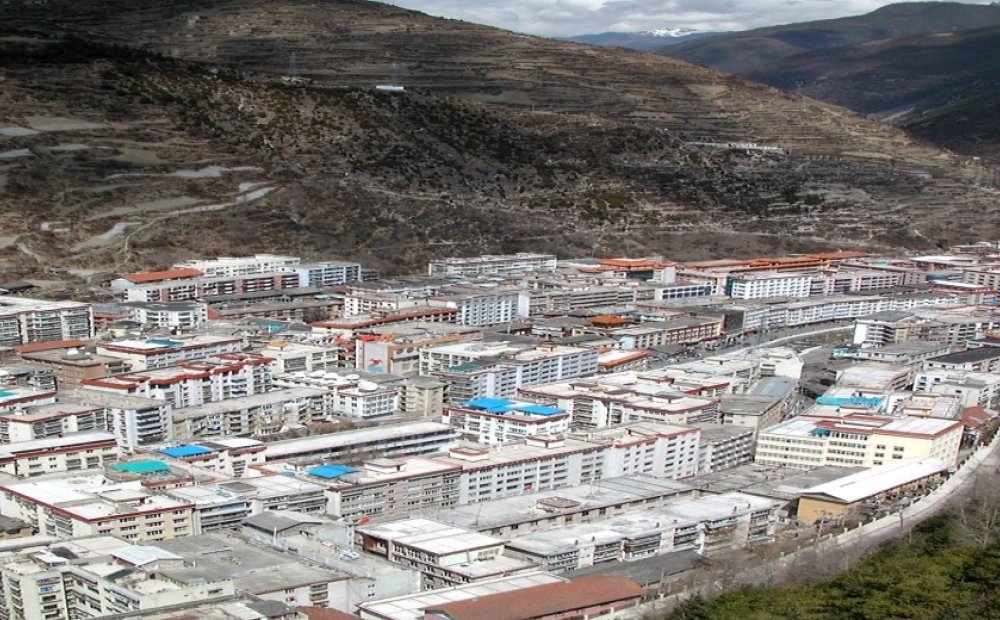Ground Truth Briefing | Unpacking COVID-19 and the Connections Between Ecosystem, Animal, and Human Health and Security

COVID-19 has brought into stark reality the deep connections between wildlife, the environment, public health, and human security. And yet, despite the fact that much of the global population has been left stunned by the swift-moving and devastating pandemic, to some, what we are experiencing today comes as little surprise. In fact, experts have been trying to sound the alarm for decades. As recently as a few years ago, epidemiologists at the World Health Organization coined the term “Disease X” as a descriptor for a COVID-19-like pandemic. In 2008, the National Intelligence Council’s Global Trends 2025 Report included an eerily similar description of how a pandemic would likely start. Experts in these communities know that the threats posed by animal-borne infectious diseases to global health, security, and economic well-being are accelerating. Approximately 70 percent of these diseases originate with the wildlife trade, but increasingly, these zoonotic diseases are linked to environmental change, human behavior, and demographic changes, like rapid urbanization and population growth.
Understanding the underlying risks that created the conditions for COVID-19 to emerge, and the failures of public health, governance, and social systems to prevent and properly mitigate the spread of the virus, is critical to both addressing the current crisis and ensuring it doesn’t happen again. The Wilson Center held a conversation with experts who have been tracking the connections between animal, ecosystem, human health, and security, and discussed what steps policymakers need to take to mitigate the next global pandemic.
Selected Quotes
Sharon Guynup
(7:31) “The current pandemic has brought our relationship with wildlife and nature into sharp focus, and along with it, a renewed realization that human health relies on the health of the planet. An estimated 70% of new human infectious disease outbreaks, come from pathogens that originated in animals.”
(8:38) “For decades we have heard warnings from epidemiologists and infectious disease experts that markets like the one in Wuhan are dangerous breeding grounds for the next pandemic. These markets are microbial petri dishes. Wild animals are shipped from around the world and then jammed together in filthy cramped cages…In such close proximity, these animals exchange pathogens that can evolve, gaining the ability to jump into new vulnerable hosts that lack natural immunity to them, and that includes humans.”
(13:25) “Any wild species may carry bad actor pathogens, whether they are illegally traded or sold on the black market. China’s actions will have an enormous ripple effect on the policies of neighboring countries that are both consumers and active trade hubs, including Vietnam and Thailand. However, since wildlife trade is a global issue, it requires a global effort.”
(16:00) “Our well-being is inextricably linked with that of the planet’s web of life. In fact, one could argue that the state of the world can be measured by state of the wild. Perhaps this current pandemic will serve as a clarion call that we are vulnerable to emerging viral threats. Human health, animal health, and ecosystem health are inextricably linked, and protecting nature protects humanity.”
Ellen P. Carlin
(18:43) “It’s easy to think that wildlife will benefit if trade bans go into effect, but these wet markets are actually likely to go underground if they are banned, and animal welfare could get even worse. We also know that poaching is increasing in some countries, such as in Africa, as tourism revenue declines, and local people need money to support their livelihoods.”
(21:06) “Wildlife trade is a piece of what we are reckoning with right now. COVID-19 is really giving us a chance to finally reckon in a really public way with the many drivers that are pushing infections out of the forest, out of animal hosts, out of insect vectors…We need to be very, very clear that this is a human-made problem, a humanity-made problem—not a China-made problem, not a bat-made problem. It’s really all of us collectively making decisions about the way that we live.”
(23:58) “Wet markets aren’t new. They’ve been around a very long time. But the human desire for a globalized world means we’ve created dense factor cities—Wuhan, like many cities in China, supply the commodities that we Americans and many others are looking for. So, you set up these dense cities, physical pathways through which viruses can travel out of these traditional markets, which have been around for centuries, and around the globe in 24 hours.”
(25:47) “You have localized epidemics that can rapidly translate into globalized pandemics. This one is causing massive economic upset in line with the Great Depression, and it’s completely offended our ability to deal with other health threats that are still occurring—all of the other health problems that we have haven’t gone away. It’s also made us unbelievably vulnerable to an intentional act that could be perpetrated at the same time.”
(40:52) “I think there is absolutely no evidence to indicate that this was in any way intentional. Parsing and pealing apart whether this was an accident that resulted from the release from the lab or if it was a natural—“natural,” still human-made ultimately—but a “natural” spillover event at a market is going to be really challenging…Either way, I think we need to deal with this knowledge that the risk can come from either nature or from laboratories.”
Rod Schoonover
28:30 “The Unites States has a massive national security apparatus – by far the largest in the world – with a gigantic budget. And the department of the defense budget is in the ballpark of 700 billion dollars annually. And there are the comparatively smaller but sizeable budgets of the intelligence community departments of state, energy, etc. But the national security budget should be large. Because national security is the governments most important role. Especially the protection of its citizens at home and abroad. Unfortunately, U.S. national security is outdated. And needs to be recalibrated, I think, to reflect the threats that the country faces.”
30:00 “While still in government under the Trump administration, I was told explicitly that there are only 4 countries the U.S. cares about: China, Russia, Iran, and North Korea. So as a senior intelligence officer focused on environmental and ecological change, this felt like a giant disconnect. The planet is being dramatically changed by anthropogenic forces, and dangerously so, but we continue to be stuck in old paradigms.”
31:35 “Now, if you think of natural and ecological systems as relevant only to pretty pictures on National Geographic or documentaries on Animal Planet, then this probably registers somewhere on the ‘oh that’s too bad’ meter. But, if you understand the deep connectedness of the planet, which many of the listeners on this call undoubtedly do, you understand that the very support system for humanity is in jeopardy.”
Speakers

Environmental journalist and author; Contributor, The New York Times, National Geographic, and other outlets

Introduction

Moderator

Hosted By

Environmental Change and Security Program
The Environmental Change and Security Program (ECSP) explores the connections between environmental change, health, and population dynamics and their links to conflict, human insecurity, and foreign policy. Read more


China Environment Forum
China’s global footprint isn’t just an economic one, it’s an environmental one. From BRI investments in Africa and Asia to its growing presence in Latin America, understanding China’s motivations, who stands to gain - and who stands to lose - is critical to informing smart US foreign policy. Read more


Science and Technology Innovation Program
The Science and Technology Innovation Program (STIP) serves as the bridge between technologists, policymakers, industry, and global stakeholders. Read more
